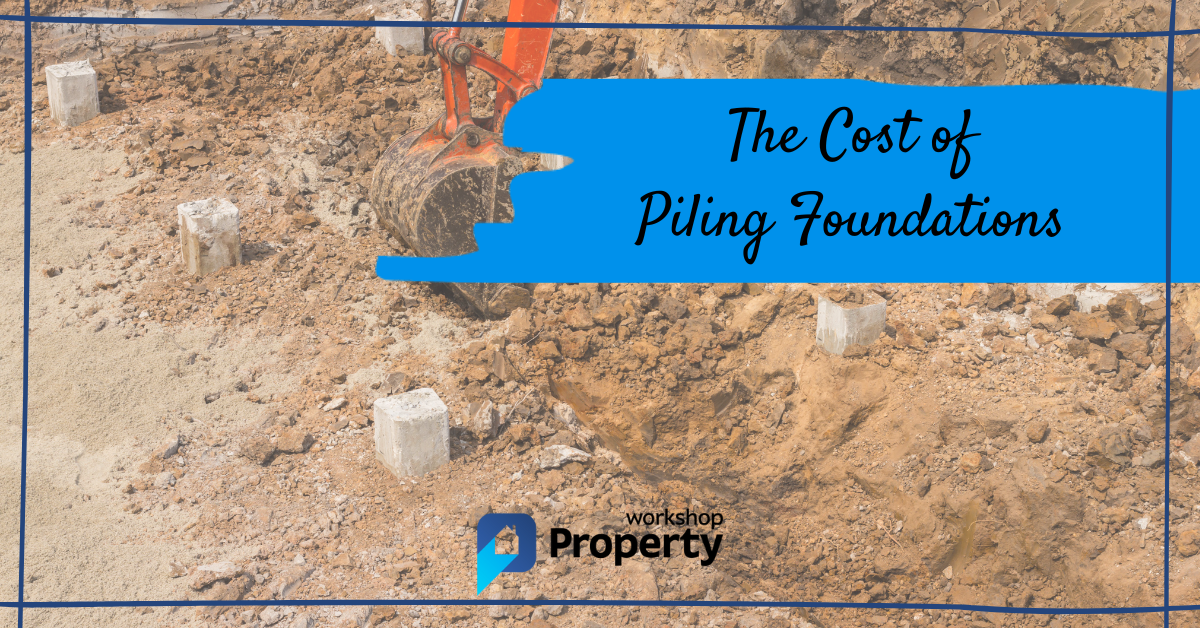Piling sets a foundation with concrete, steel, or sometimes wood columns. These columns are burrowed deep into the ground to provide a strong and stable foundation for the new building.
This guide looks at the cost of piling foundations in 2024 and the different types available.
In a Hurry? Find top-rated builders in your area by clicking the button below:
Why Use Piling Foundations?
You may need piling if the stability of the soil is impacted by water, the water level itself is too high, or your current foundations are not stable. If the stability of the ground you’re building on is compromised in any way, there’s a good chance you’ll need piling.
DIY or Hire a Pro?
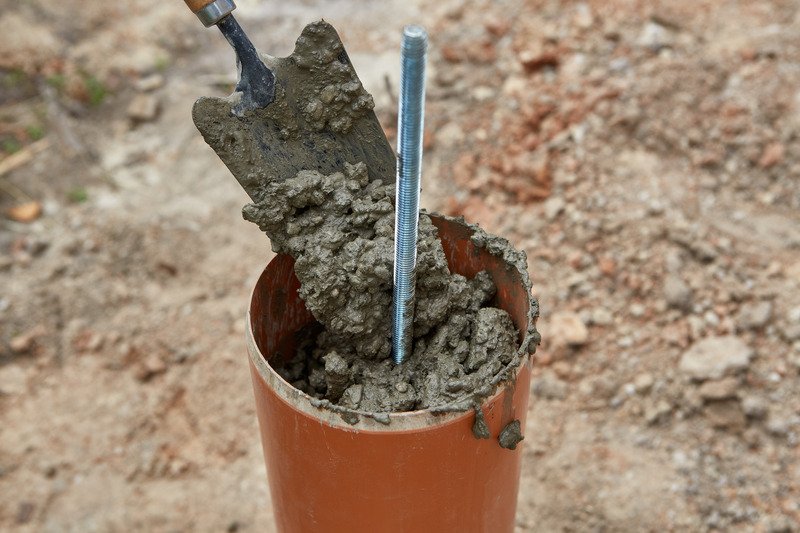
First, you must decide whether piling is a task you can complete yourself or whether you require a professional to undertake the work.
Piling is a highly-skilled job that requires knowledge and precision. Therefore, we highly recommend hiring a professional for this task.
When hiring a pro, there are certain things you need to consider. Firstly, you must check industry standards and ensure that contractors meet these regulations. You should also consider their individual experience, skills, certification and any work guarantees.
To find top-rated builders in your local area, check out Rated People and receive FREE quotes for your piling project.
Cost of Piling Foundations in 2024
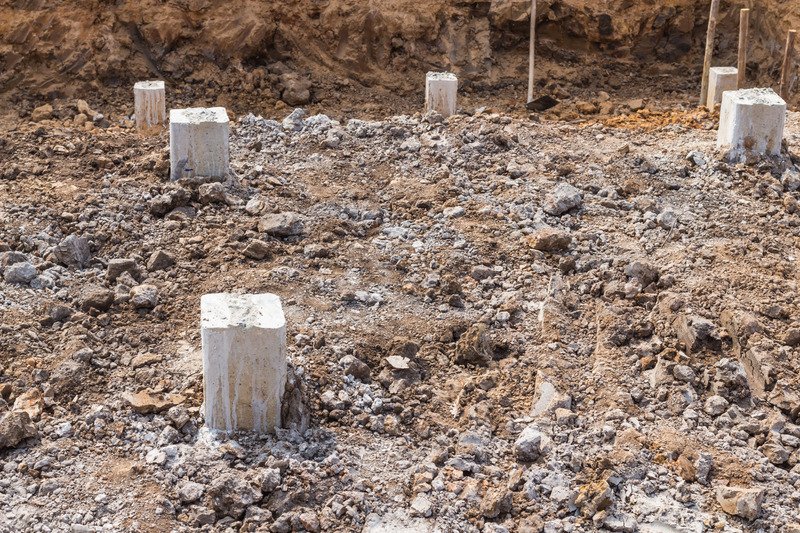
The cost of piling foundations depends on several factors, including the number, type and depth of piles.
The contractors’ accreditation also affects the final cost, as chartered civil and structural engineers cost more. You must also consider your floor material (e.g. concrete slab).
A guideline price for piling is around £300 per m2. So for an extension of 4m by 8m, you’ll pay between £8,000 and £10,500. These costs include the floor slabs.
However, set-up costs and any form of unstable ground shifts relative to the size and depth of the piling will increase the quoted price.
There are other costs associated with piling that you must also consider. For example, if it’s a large job, say for a new house instead of an extension, you may wish to conduct a site investigation before selecting the right piling type for your project.
Another cost you may face is getting information from your local authority about the ground conditions before construction. A geotechnical investigation costs around £1,500, but you can get a desktop version for about £600 if your budget is tight.
A final point to consider is how many piles you can install daily, and this number can vary considerably from 6 pairs to 30 pairs of piles.
Types of Piling Foundations
Let’s look at the various types of piling foundations and how much you can expect to pay for each one.
Mini Piling
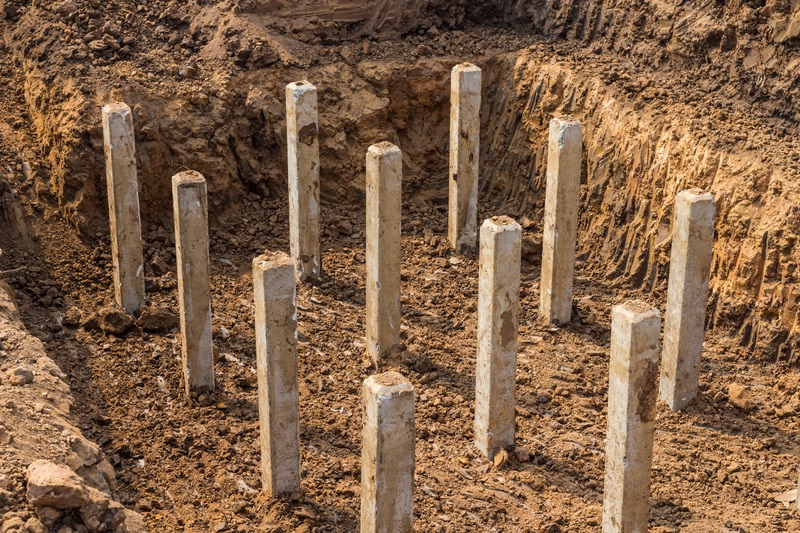
Mini piling is piles that have a small diameter.
Due to their narrow width, mini piles are lighter than the other types of piling, yet they still support a heavy load. They’re also cheaper at around £50 per metre.
Mini piling is particularly useful in small spaces with limited access.
Screw Piling
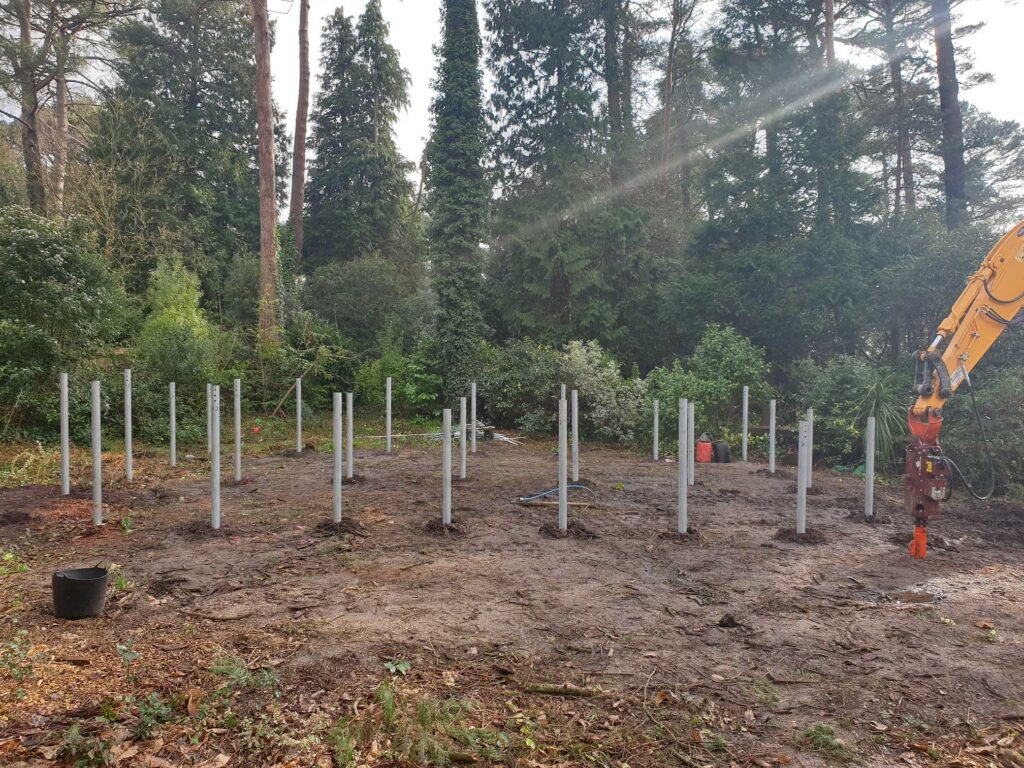
As the name suggests, screw piles are screwed into the ground.
Typically, you find this form of piling in commercial buildings, but you’ll also occasionally find it in houses and extensions.
Screw piles typically cost around £200 per metre.
Sheet Piling
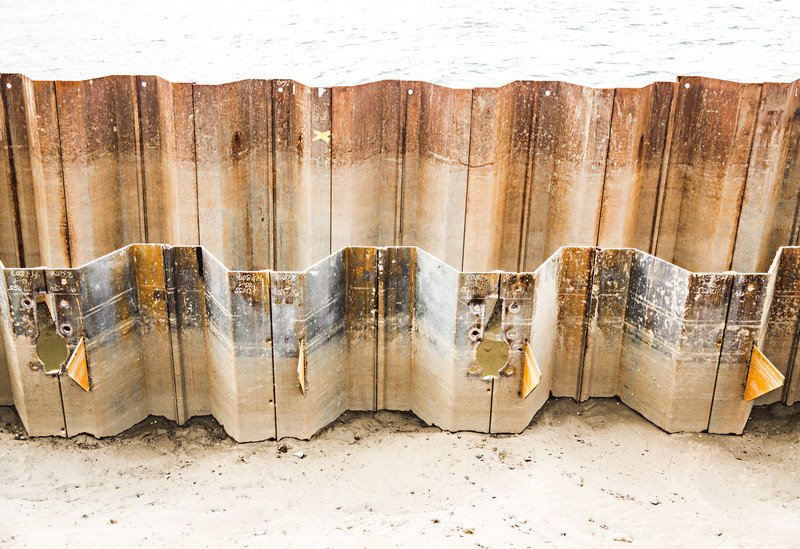
Sheet piling is where the piling is buried into the ground to support excavations. You will unlikely use this piling in domestic dwellings as it’s costly.
Sheet piling comes in steel or plastic. Steel sheet piling is strong, watertight, and costs around £180 per metre.
Plastic sheet piling should last longer than steel and has the extra benefit of being lightweight.
Furthermore, plastic sheets cost around £100 per metre, but they’re not as strong as steel piles.
Timber Piling
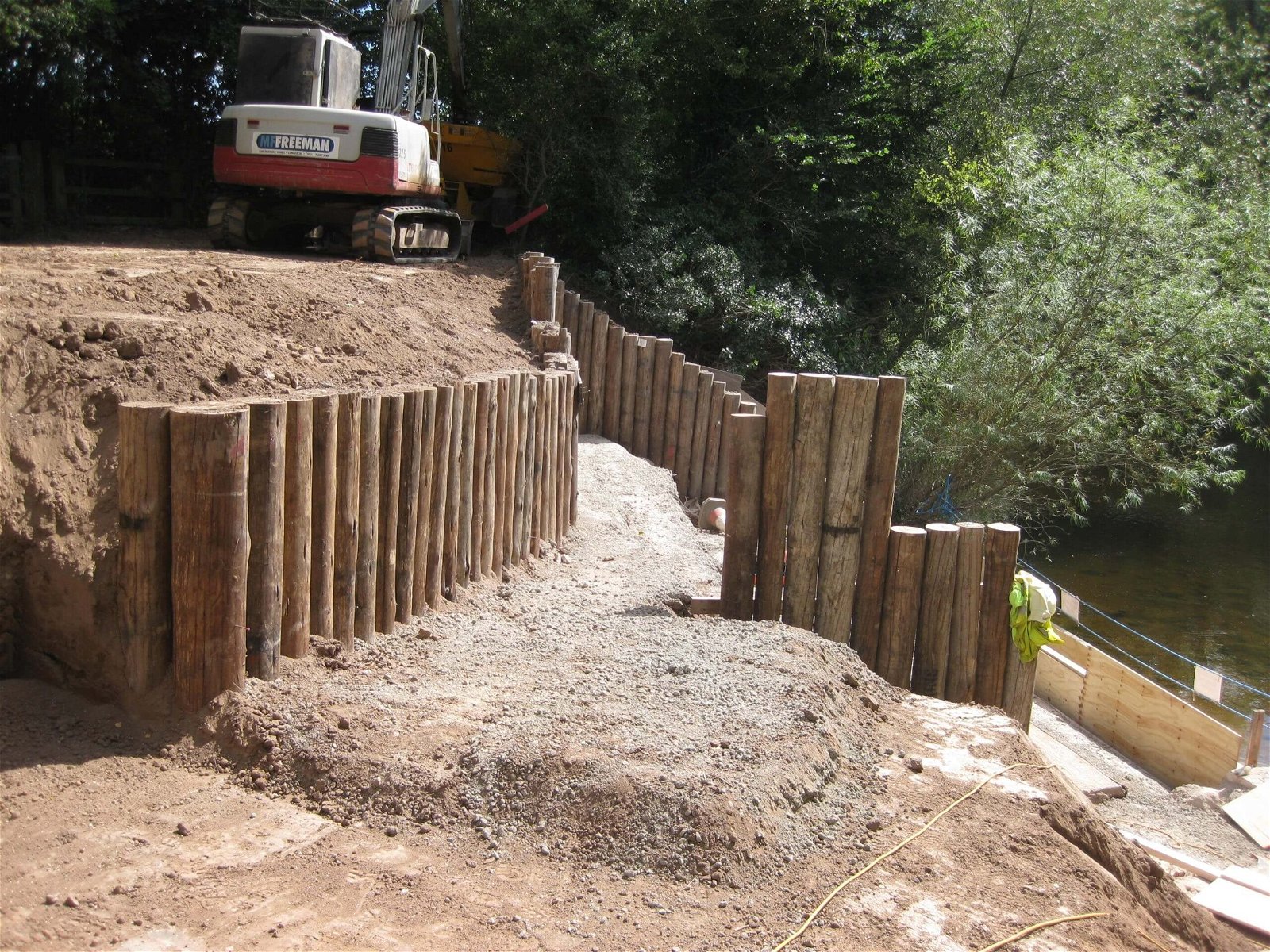
Timber pilling is commonly used in Australia, Canada and the USA, but not in the UK. Therefore, you may struggle to find the materials you need to complete your piling project.
You need soft ground for this form of piling. It costs around £40 per m3 for Sitka spruce sawlogs and up to £150 per m3 for Larch.
Contiguous Piling
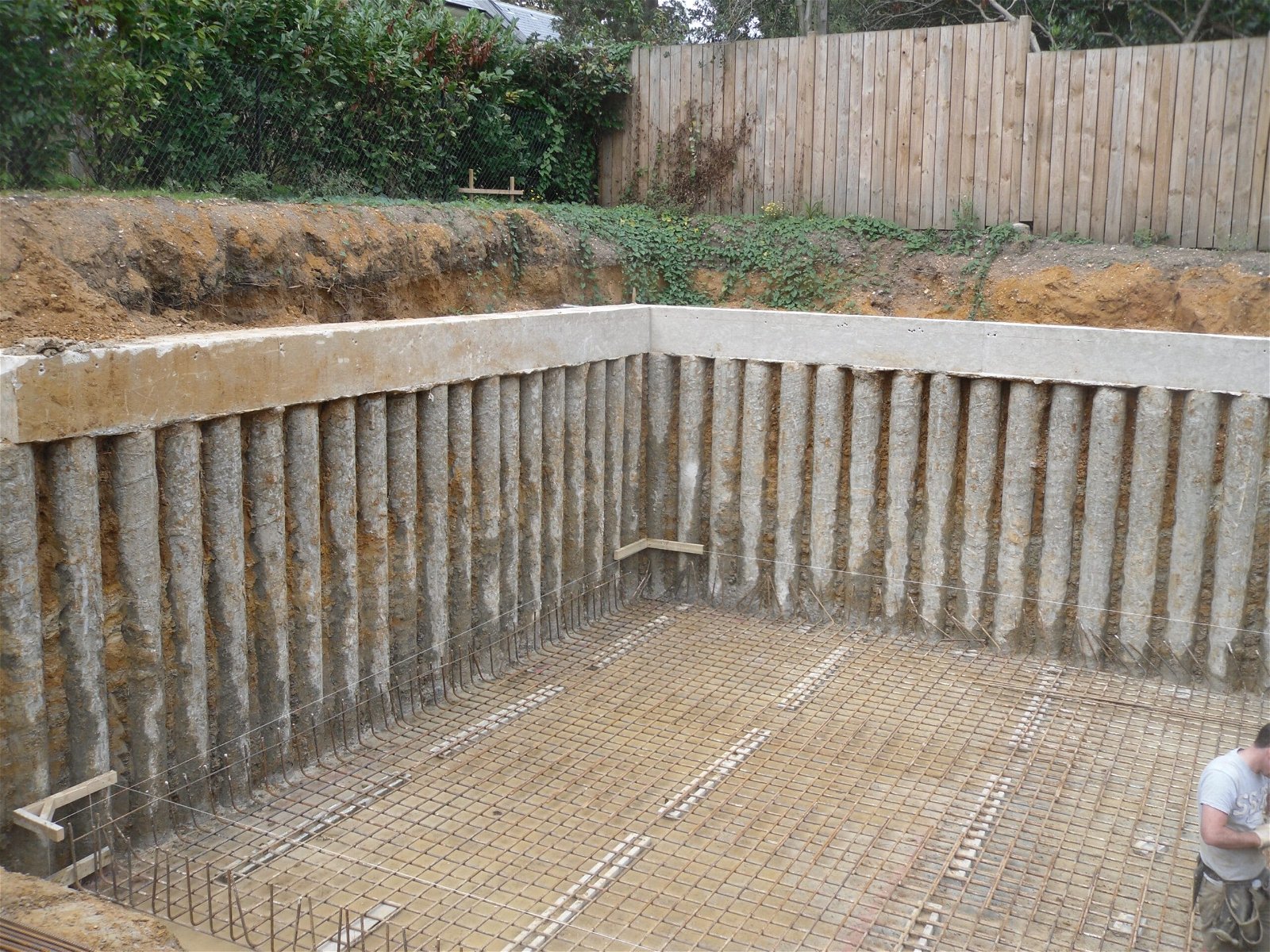
Use contiguous piling where the soil is dry and the groundwater level is below the excavation depth.
Contiguous piling is the cheapest (and quickest) form of piling. Therefore, it should cost you less than the other types of piling listed above.
Don’t fancy doing this job yourself? Find top-rated builders in your area by clicking the button below:
Final Thoughts
As this guide has shown, several factors affect the cost of piling foundations.
You must first decide what type of piling you require and then find out what surveys you need before you begin work. However, a reasonable guideline price is approx £300 per m2.
You’re best leaving the process of installing piling foundations to professionals. To find top-rated builders in your local area, check out Rated People and receive FREE quotes for your piling foundations.

